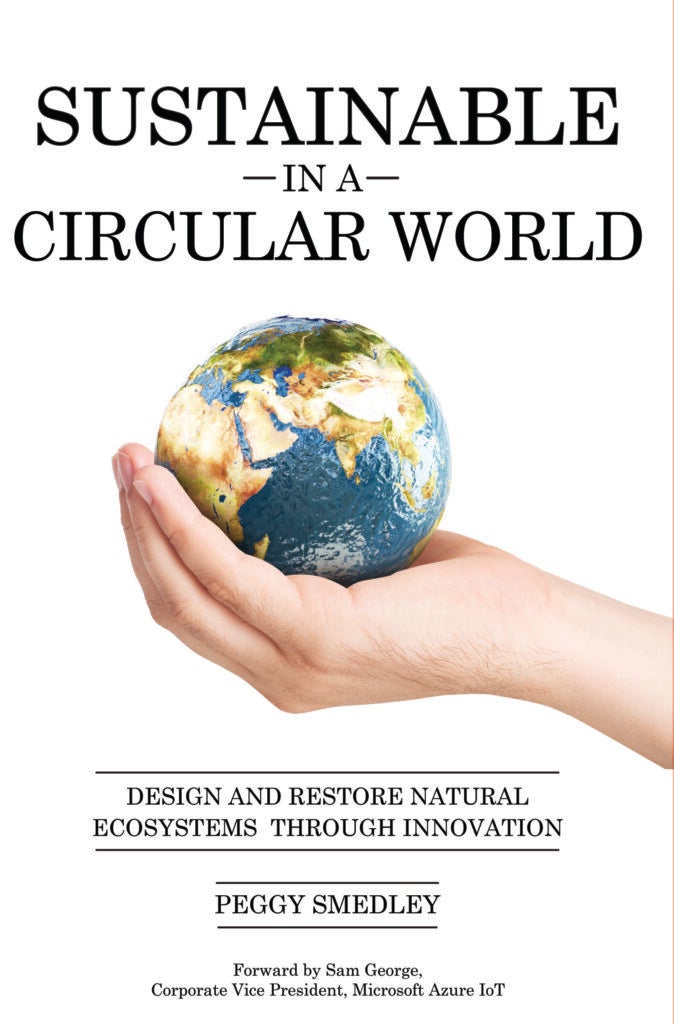Businesses Are Starting to Become Part of the Sustainability Solution
By: Peggy Smedley

Our current linear, take-make-waste consumer model is leading to ever escalating climate change that will see temperature increases by as much as 6 degrees Celsius. That might be a worse-case scenario by some observers, but at this pace we’re likely to see a 3-degree increase. Simply, if we continue at this rate, we’ll emit 65 billion tonnes of greenhouse gas emissions in 2030 and further exacerbate the problem.
The 2021 Circularity Gap Report warns that we need to reduce global emissions and reduce our total material footprint. The solution comes in a more circular economy that regenerates products and materials to decrease waste and pollution.
The report suggests that if we change the way we produce and consume materials and double global circularity, we can make a big impact. By cutting our global emissions by more than one-third and reducing our total material footprint by more than one-quarter before 2032, we can keep temperatures from rising more than 2 degrees.
Businesses can be what propels this movement forward. Let’s look at some examples already underway.
Eliminating automotive waste
The automotive industry is ripe with opportunities to reduce waste. This could involve recycling materials like metal, solvents, batteries, plastics, and glass. Doing so could help address some of the environmental concerns and help us move to a more circular economy.
Consider the example of Subaru. The company has been in the business of reducing waste and recycling for more than a decade. Back in 2010, Subaru recycled 25,164 tons of scrap metal, 1,378 tons of cardboard and paper, and 75 tons of wood. Then in 2012, the company achieved ISO 50001 Energy Management Certification for energy management strategies to increase energy efficiency, reduce costs, and improve energy performance.
Perhaps what is most impressive is this automaker managed to transform its automotive assembly plant in Indiana into a zero-landfill factory.
What if there is an opportunity for automation and technology to help us move to a more circular economy as well?
As an example, Toyota leverages lean manufacturing. The Toyota Production System is based on two concepts: jidoka, which can be loosely translated as automation with a human touch, and just-in-time delivery. This production control system is based on many years of continuous improvements with the objective of making and delivering the vehicles ordered by customers in the quickest and most efficient way. The result is eliminating waste and increased productivity.
Tech companies step up
Many technology companies are looking at how to solve this take-make-waste problem. Microsoft has committed to achieve its zero waste goals by 2030, which marks the third endeavor in Microsoft’s environmental sustainability initiative focused on carbon, water, and waste.
The company is building Microsoft Circular Centers to reuse and repurpose servers and hardware. It is also eliminating single-use plastics in packaging and is employing technology to improve waste accounting.
Microsoft also aims to achieve — at a minimum — a 75 percent diversion of construction and demolition waste for all projects.
Meanwhile, since 2008 Google has made a concerted effort to limit waste going into landfills throughout its Bay Area campuses. Google has adopted new programs, increased training of cafe and janitorial staff, and implemented behavior change tactics to make strides in this effort.
The future of the planet rests on the strength of businesses’ sustainability efforts. Let’s not waste this opportunity. 
2025 Views












